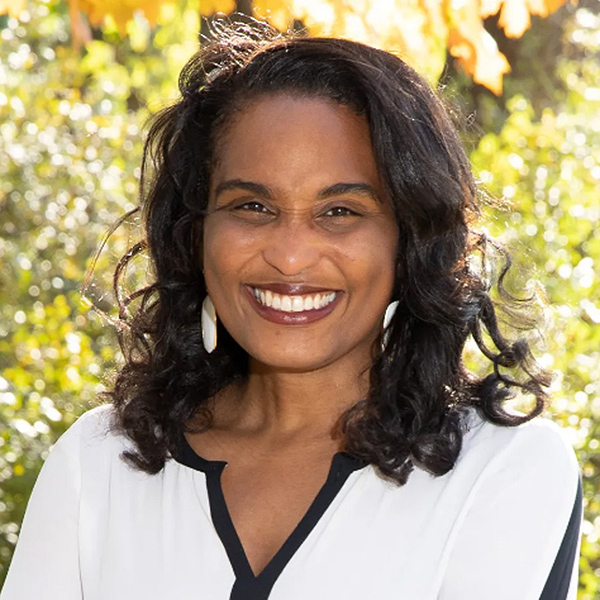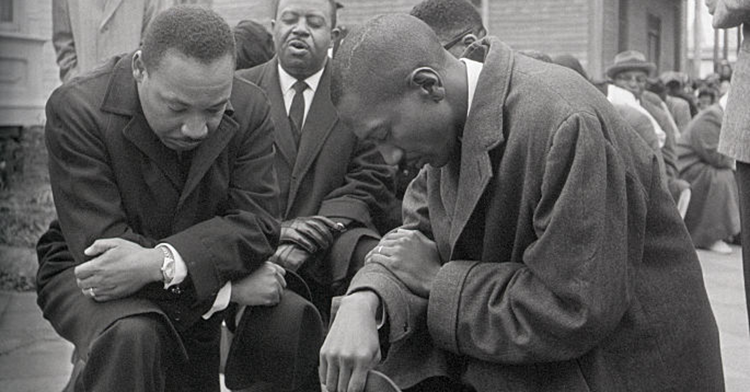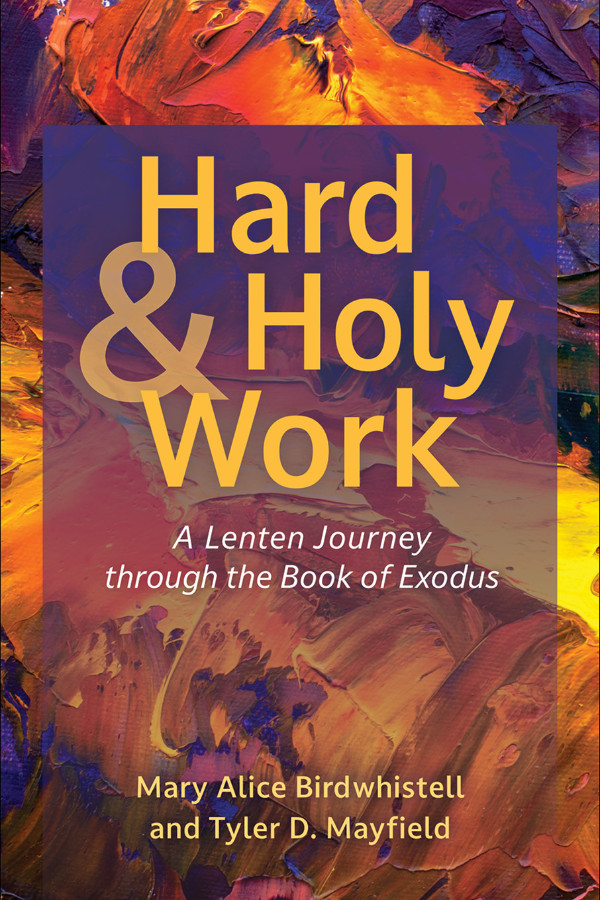Violette Nyirarukundo Mwenedata is the founder and executive secretary of El Ezer Counseling Ministry, based in Kigali, Rwanda, which offers counseling and training for lay counselors from various denominations and Christian organizations. Mwenedata and her family fled Rwanda in 1994, leaving behind cattle, property and everything else that they owned. She, her husband and their six children went to Nairobi as refugees.
She graduated from Nairobi International School of Theology with a master’s degree in biblical counseling. Mwenedata is on the faculty of the African Peacebuilding Institute in Zambia at Mindolo Ecumenical Foundation, where she teaches a seminar on “Comparative Approaches to Trauma Healing and Reconciliation.” She also serves as a facilitator at RECONCILE in Yei, Southern Sudan.
While at Duke Divinity School’s Summer Institute, Mwenedata spoke with Faith & Leadership about helping others heal from trauma. The video clip is an excerpt of the following edited transcript.
Q: It’s striking to think that after all the trauma you went through in Rwanda you are now able to help people in places such as Haiti.
When the earthquake happened in Haiti, we were remembering what happened to us and we were feeling the suffering which was around, so it brought us near them. We found that they are still really bleeding inside, so they are talking about it. It is a quite hard, a hard experience they went through. You know, somebody said suffering is a language which doesn’t need translation.
Q: That’s beautiful. Tell me about the work you’ve been doing with RECONCILE in Southern Sudan, and specifically, this recent experience of reconciliation they went through there.
A: Well, two years ago I started to go to Sudan, invited by an organization called RECONCILE, because they’ve been doing a lot of work to reconcile people of different ethnic groups.
They bring church leaders and lay people who are active in their churches, and for three months they stayed there on campus, being empowered for the work they have to do in their churches. It’s wonderful. Last February, I spent another week in a place called Pibor; it is near the Ethiopian border.
There was a meeting going on between two groups of women from two different tribes: the Murle women and the Nuer women. The two groups have been fighting over the raiding of cows. And last year, something strange happened. Usually the fighting was involving only men, but this time they went on killing even women and children. So that was really shocking for those women. This is how the women from the Nuer side asked RECONCILE [for help], saying, “We want to meet the Murle women to see how we can stop this, because we don’t want to produce children who will be killed.” And this is what they’ve done, and it was so amazing.
Q: What is biblical counseling?
It is counseling, but based on the Word of God. It’s like having a journey with a person who is suffering, knowing that actually there is a healer, the wounded healer who is Christ, who, at the end, will help the person. But meanwhile the person needs somebody to go alongside towards the healer.
Q: How do you understand what pain is? What are some of the ways that you think about the deep trauma that the people you work with have experienced?
Pain is pain. I don’t know how to explain that. What I’ve seen is that in my community, Rwanda, we talk about genocide, but actually it is not only genocide which took place in Rwanda.
When I look at my people, I see them as all survivors. They are survivors of genocide, survivors of war, survivors of mass killing, survivors of long years of exile, survivors of refugee camps, survivors of so many diseases, so almost every single Rwandan has a story and a story of pain.
So, to me, I tell to people pain is pain and it takes the whole space in the head. It is like the ear. We can’t measure pain. We can’t say this one has suffered more than another, but only the person on his healing journey is able to take his eyes from the pain and to look around and say, “I thought I was the only one who suffered, but others have suffered, too.”
And to me that is a symptom of this healing. The healing is starting to take place.
Q: Why is it important that a person recognize the suffering of someone else?
Because when they’re only stuck on their suffering, they have what we can call the victim identity. Somebody with a victim identity is the one who sees the whole world through his suffering, and this one is not making a progress at all.
But when that person is helped, and is able to look around, not only to his pain … [but] also to notice that he’s not the only one to suffer, and is able to see others, and to feel their suffering -- actually, it is bringing back life.
Q: Tell us about the shift going from being a counselor yourself to training other people to be counselors.
Actually, I still do some counseling. When I started this ministry, I was doing counseling myself. But after some time, I found that I couldn’t do it. Many people wanted to come to me personally, and I was feeling the fatigue. So I said that this is not a good strategy, because I can’t do that. What I can do is to help others actually to be able to do it in their own society, in their own communities. This is how I shifted that and up to now this is working well even if I feel that still many, many counselors are needed and many, many people to train others are needed. So just I keep praying for us to get more people on that area.
Q: You’ve talked before about how there are at least two different ways to listen: that you can listen in a way that makes space for the person talking, or you can listen, and you have the answer, and jump in with what you’ve called the “killing words.” Can you talk about those different ways of listening to someone’s story?
I may call what we do being good listeners. It’s to be able to listen to others. Now, because, as I said, in my community almost everyone was wounded, one would start to talk about his story, trying to open up, and [in dialect, someone would say the “killing words”], “At least you.” “At least you” means your suffering is less than mine. And this has brought many people not to talk about their suffering, because it was not recognized now, and that word comes from those who are bearing the victim identity.
But when you move from the victim identity, you become what we call survivor. A survivor is somebody who has a good story to tell, even if there is a frightening experience he went through, but he can say, “I am alive!”
That kind of person is the one who is ready maybe to be an example of Christ, make a step, and become a wounded healer. Because his own wounds are helping that person to listen better to the wounds of others.
That person will be saying, “At least me. My suffering is less than yours. And because of that I feel that I can’t even know what you went through, because it is beyond what I can understand. This is why I can come and listen to you with a listening ear.” Keeping silent on his own suffering to be able to listen to the other one. I call that a healing way of listening to the wounded one.
Q: It seems like the ability to listen is important for someone in charge of any kind of organization. Is there something those types of people can learn from the kind of listening you’re talking about?
I think it is very important for them to be good listeners. We look at them as if they are in administration and high up, while listening requires them to come and build a relationship with the person, to build trust. To be able actually to understand somebody who is saying, “I want to tell you something; I want to tell you what happened to me,” knowing that he will not be judgmenta. So it is really needed.
Q: What does the church elsewhere have to learn from the church in Rwanda and all that you have been through?
I think Rwanda is a good experience to other people, other churches, of what the church has to give. How can a country which was known to be 90 percent Christian go through the genocide?
The real issue to me is, What kind of message was given? Is it a transformative message -- a message which goes and transforms the whole person, becoming a new creature? Or is it just a message to have good statistics, but we have the same heart, non-transformed and not born again?
We need to look back and say, What kind of Christians are around? Are they real Christians? Are they born-again Christians? Are they new creatures who are able to say no, and to swim against the stream? Or do we have only Christian by name?
Because being baptized was like becoming civilized and getting a name from the Western part of the world: John, Mary, Violette and so on. But this time I think we need to look into what kind of Christian, what kind of transformation is needed. So we need a Christianity which has deep, deep roots, which would stand even when there is trouble, and a person can say, “I believe in the Word, I am Christian; I can’t do this.”
Q: Is there anything you’ve noticed about people who stood against that tide -- who hid someone despite danger to themselves or their family, or who refused to kill? Is there something you can recognize in them that made that possible?
Yes, they did it because of their belief. They did it saying, “I can’t kill.” There were people who didn’t get involved and who would not help. But there are those who took a step to hide other people knowing very well that if they were found, they would be killed. But because they are Christians, they said yes. If we are to die, we will die together.
Q: You’re in a profession that seeks out people in pain. How do you maintain hope at the bottom of an ocean of pain like that?
The source of hope is there because of Jesus, because of that Word. The Word of God which brings back life, the Word of God which you resurrect, the Word of God which is able actually to transform our suffering into a healing power.
And this is what I go around telling people: Don’t waste your pain. You didn’t suffer for nothing. You’ve suffered, but out of this suffering, if you are able to hand over this suffering into God’s hands, he will transform it, and it will be so precious.
I like the verses in the second letter of Paul to Corinthians, Chapter 1, verse 3, 4, and so on, talking about Christ being our God, the Father of comfort, the one who comforts us every time when we are in pain. And with that comfort, we are able to comfort others who are in pain. I’m just summarizing, but it is like that.
So, without pain, we can’t know the comfort from God, but when we can receive the comfort from God, that comfort stays with us so we become rich. And because we are rich, we are able to take that comfort from God to others who are suffering, and this is actually the value of suffering.






